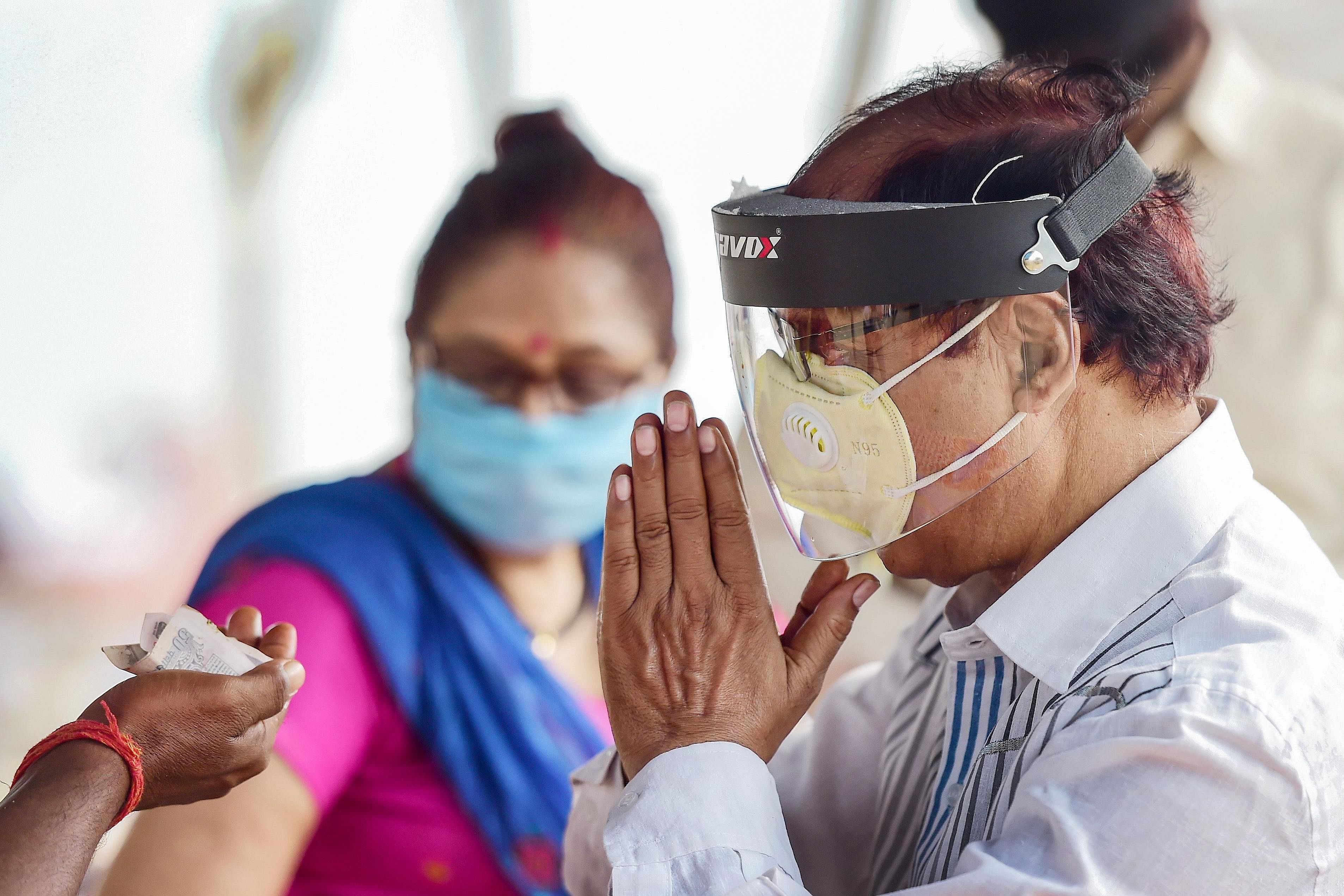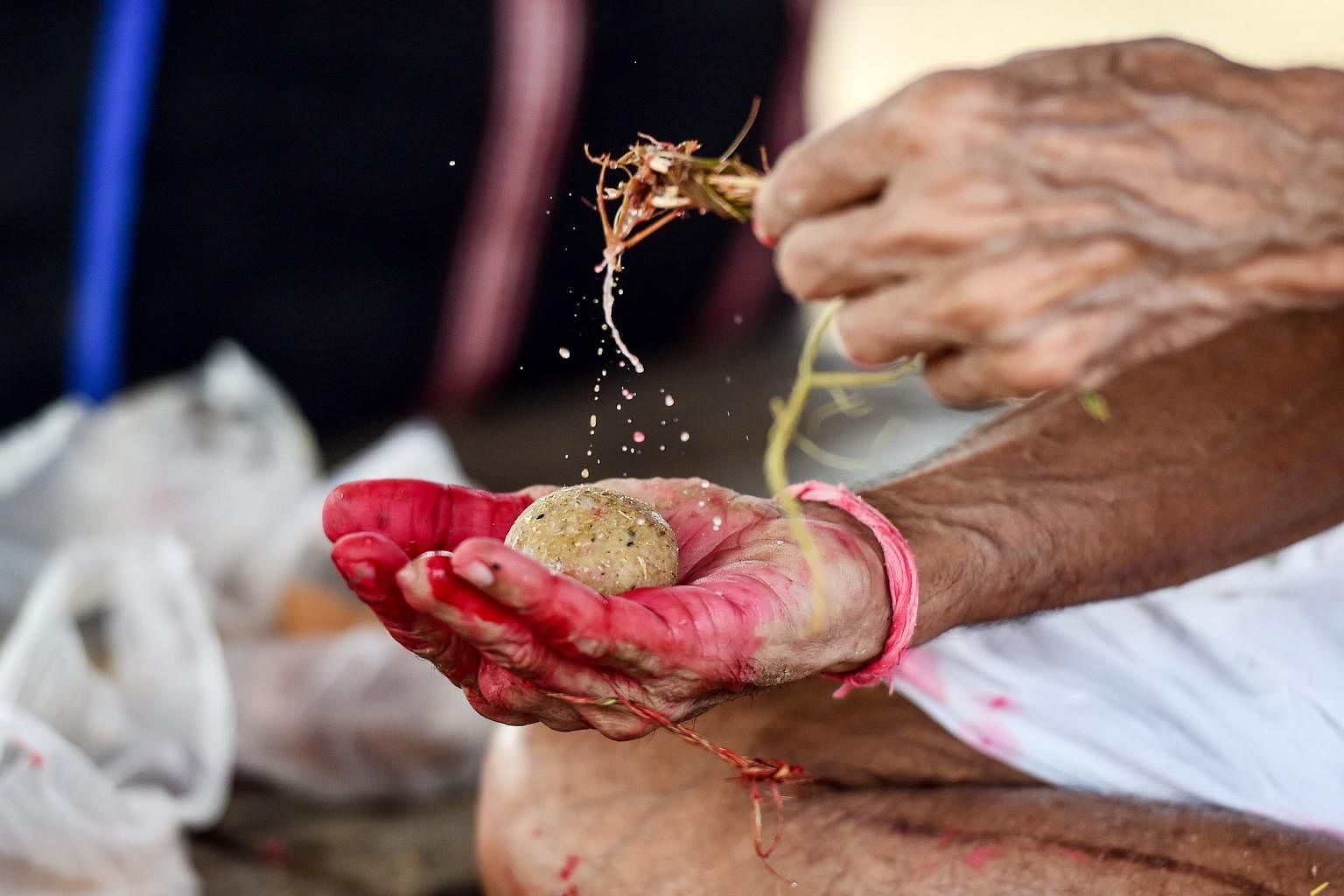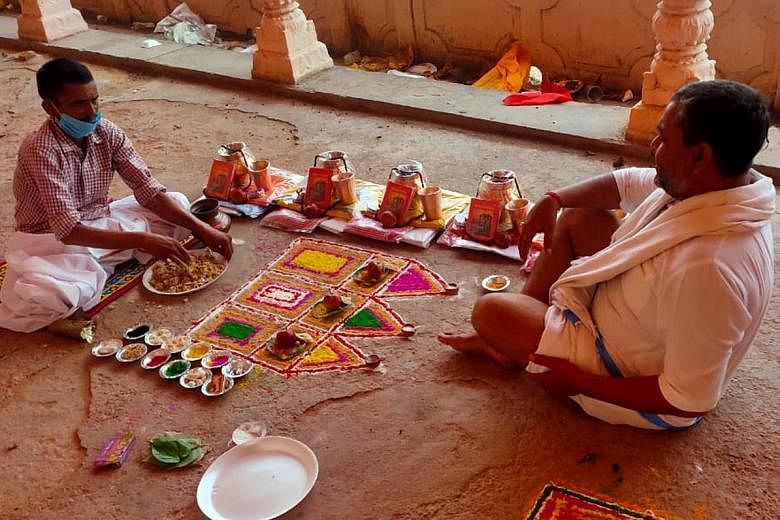NEW DELHI - Salvation could now just be a Zoom call away with the traditional Hindu ritual for the dead - the pind daan - increasingly moving online because of the coronavirus pandemic.
A pind daan is an important ritual for Hindu families that has staved off change for millennia.
It is conducted a year after a person's death so that the soul attains salvation.
Such ceremonies are held by the dead person's descendants at sacred locations in places such as Varanasi (Uttar Pradesh), Gaya (Bihar) and Siddhpur (Gujarat).
One of the first firms to offer online pind daans - Holy Voyages, a Varanasi-based travel agency - did so in 2015. It has seen such services more than double to 185 so far this year from 74 last year.
While its customers include Indians living abroad, the majority are from within India.
"The number has certainly increased because of the pandemic that has limited the ability of people to travel to holy places where these rituals are conducted," said Mr Prashant Verma, the director of Holy Voyages.
While conducted throughout the year, a particular auspicious period to propitiate ancestors is Pitru Paksha, a 16-day period in the Hindu calendar that, this year, fell in the first half of September.
It coincided with the Hungry Ghost Festival, which is marked in Singapore and other parts of South-east Asia to appease the dead.
An online pind daan service incorporates the regular rituals but replaces the descendant of the dead person, who normally participates in a conventional service, with a local representative.
The ceremony is then either streamed live or recorded, for it to be sent later to the family of the dead person.
Mr Shashank Mishra, the director of another Varanasi-based firm that offers religious services, said online pind daans surged "100 per cent" between March and September this year, compared to the same period last year.
The firm has also seen a similar increase in bookings from customers who are couriering a dead person's ashes to be immersed in the Ganges.
"Our regular offline services for these two are currently just at about 10 per cent of what they were in the pre-pandemic period," he said.
The potential for such a practice to flourish in a post-pandemic world has convinced others to cash in on the trend.
TravelBaits, an agency based in Bengaluru, launched an online pind daan service in August, a year after it began offering regular pind daans as part of its offline tour packages in holy places. It has conducted five such ceremonies so far.
"There has a been a major disruption because of the pandemic," Ms Shradha Sinha, chief executive and co-founder of TravelBaits, told The Straits Times.
"Prior to this, people never thought of online religious ceremonies as an option. While many will continue to opt for an actual service after the pandemic, there will be those unable to travel, including those living abroad, who will now increasingly choose online ceremonies," she added.

But the online adoption of pind daan has drawn vociferous opposition from local influential priests across the country, including the Sri Vishnupad Management Committee in Gaya that represents local priests.
They regard this shift as an affront to tradition, amid concerns that it may pale their significance as well as that of places of pilgrimage.
"It is completely against our values and those who are opting for such services, as well as priests carrying them out, are both doing the wrong thing," said Mr Hiranath Darhiwala, a senior priest based in Gaya.
A greater shift to online services also threatens the economic interests of these priests who retain a strong control on the market for such services, as well as those of others who depend on incoming visitors such as hotel owners, local restaurants and transport service providers.
The age-old tradition, however, remains too deeply entrenched in Indian society to be dislodged by an online avatar.
Even priests who conduct pind daans online have their reservations.

Mr Amarnath, who uses only one name, recommends an online service only for those who are physically incapacitated or are extremely busy.
The priest, based in Gaya, has conducted only around five such ceremonies in the last five years.
"It doesn't have the same value as a ceremony that is actually performed by someone from the family at the holy place of pilgrimage," he added.
"Isn't there a difference between paying respects to one's parents by actually touching their feet and doing so over the phone?"
Mr V. V. Subramanian, a management professional based in Kuwait, and his family are among those who opted for an online pind daan at Varanasi this year on Sept 13.
They did so for his 71-year-old mother-in-law, who died in August 2019.
He told The Straits Times that the family would have chosen an online service even if they had been based in their hometown in Hyderabad in India.
"When the rites are performed at home, it is always through a learned priest. We're not aware of the practices or chants.
"Hence, what is the difference if this priest is miles away and not next to you? It is the thought and belief that matter," Mr Subramanian said.
"If there's even a remote possibility that what we're doing can help the departed soul, then what's the harm in doing it? Isn't it better than not performing it?"












